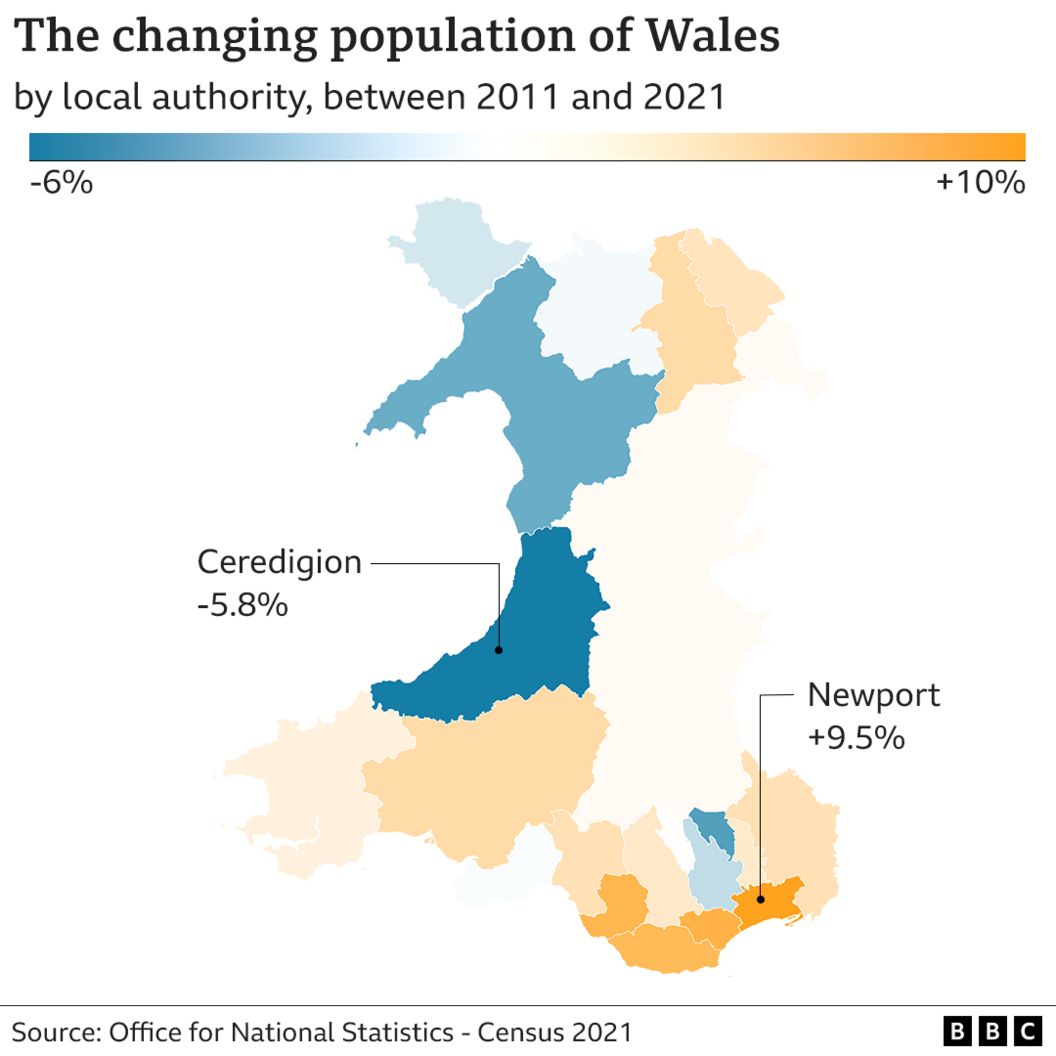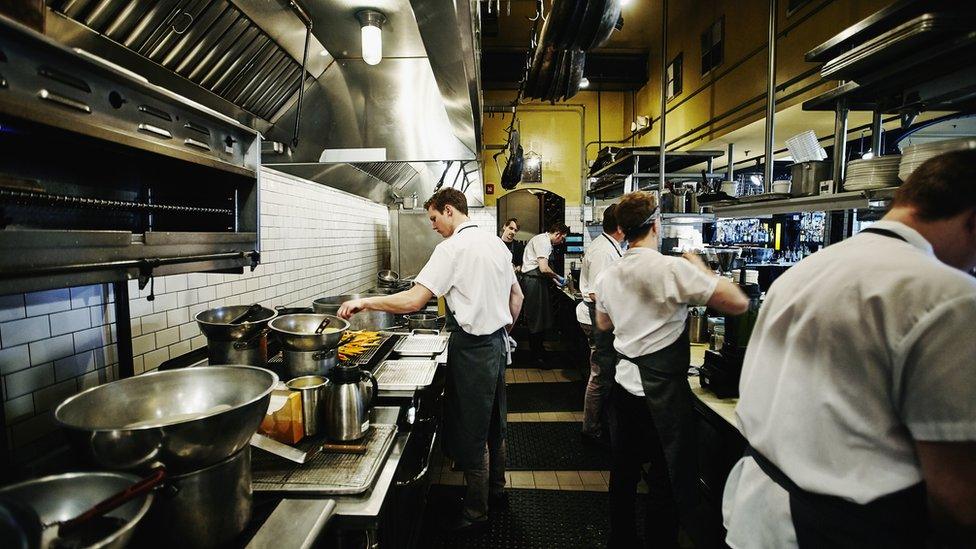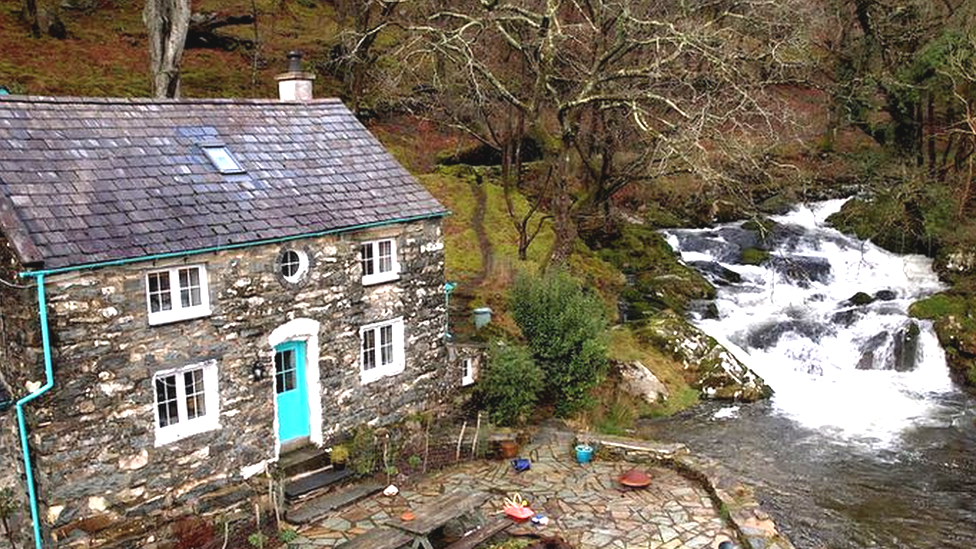Wales exodus caused by lack of housing and careers - inquiry
- Published

Iwan Roberts grew up in Dolgellau but moved to Manchester to open a café
A lack of housing and career options are among the main reasons for an exodus of young people from rural Wales, a Commons inquiry has found.
Seven of Wales' 22 local authority areas saw falls in population in 2021 compared with 2011, census data showed.
A café owner said he set up in Manchester because of a lack of industry at home and a doctor said finding local jobs was difficult.
The Welsh government said it was doing all it could to support young people.
A Welsh Affairs Committee inquiry into the issue found a lack of housing, work opportunities and unreliable public transport were pushing people out of rural areas.
Iwan Roberts left home in Dolgellau, Gwynedd, to start a café in Manchester's northern quarter six years ago.
"I didn't feel like there was an industry I could go into back home in Dolgellau," he said.

Iwan Roberts' café in Manchester has bilingual signs
"I wanted to move to the big city, to see gigs and experience more things not just wait for Sesiwn Fawr that comes once a year."
He said housing would be a factor if he ever decided to move home.
"I've bought here in Manchester now, and yes, it is expensive," he said.
"But I think Dolgellau is even more expensive now."
Lois Angharad, a 24-year-old doctor from Anglesey, said moving back after studying away was hard.

Lois Angharad says many of her friends have struggled to find work
"Bangor University now offer a medical course which is amazing and something I would have loved to do," she said.
"On the other hand, I've got friends, not in [the medical] profession, and finding local jobs is really hard."
Elain, 16, is also thinking about her future on Anglesey.
"I love Wales and where I live but there is a chance I will move away," she said, adding that she was worried her future plans would "take me away from where I am now".

Elain wants to stay on Anglesey but worries her future plans will take her away from home
The latest census data, published by the Office for National Statistics (ONS), external, for 2021 indicated seven of Wales' 22 local authority areas saw falls in population compared to 2011.
Ceredigion had the steepest drop of any county in Wales in and England, going down 5.8% from 75,922 to 71,500.
For young people in the county between the ages 15-19, the fall was 28%.
Ceredigion MP Ben Lake said: "We have to look at the way we structure and implement public services.
"We're seeing evidence that this significant change is a great cause of concern for how viable our communities are."
Further cooperation was needed between the Welsh and UK governments to tackle the problem, he added.

Rural depopulation is most prominent in some of the Welsh speaking heartlands in Ceredigion, Gwynedd, Conwy and Anglesey.
The Welsh government said it was doing everything it could to "help young people plan for their futures in Wales".
"We are tackling the issue of second homes, which can affect communities and their sustainability," a spokesperson said, adding how it aims to deliver 20,000 additional homes for rent in the social sector by the end of the current Welsh parliament.

PARANORMAL: Chilling ghost stories and words appearing on the walls...
UNMISSABLE DRAMA: When the Wolf is at the door, be very afraid

- Published20 April 2022

- Published18 April 2022

- Published17 February 2022

- Published1 February 2022

- Published18 October 2021
